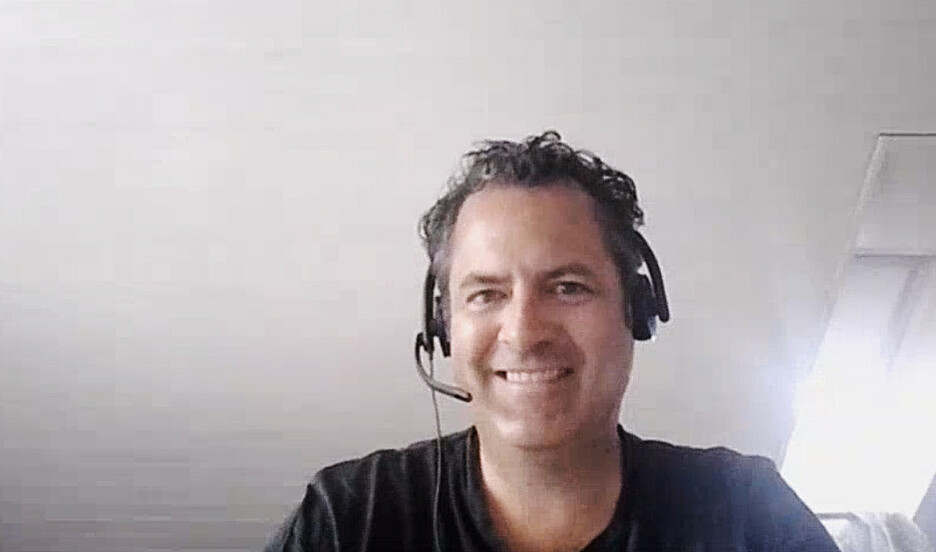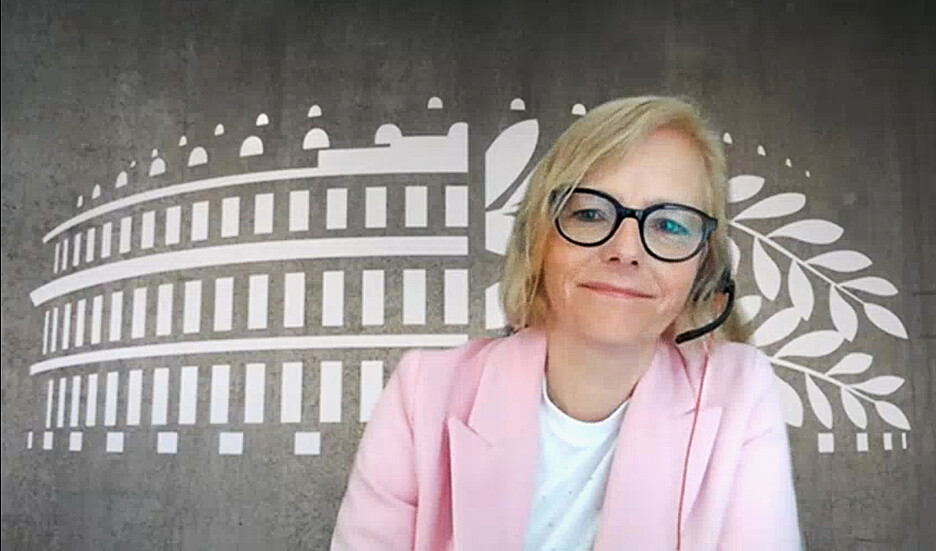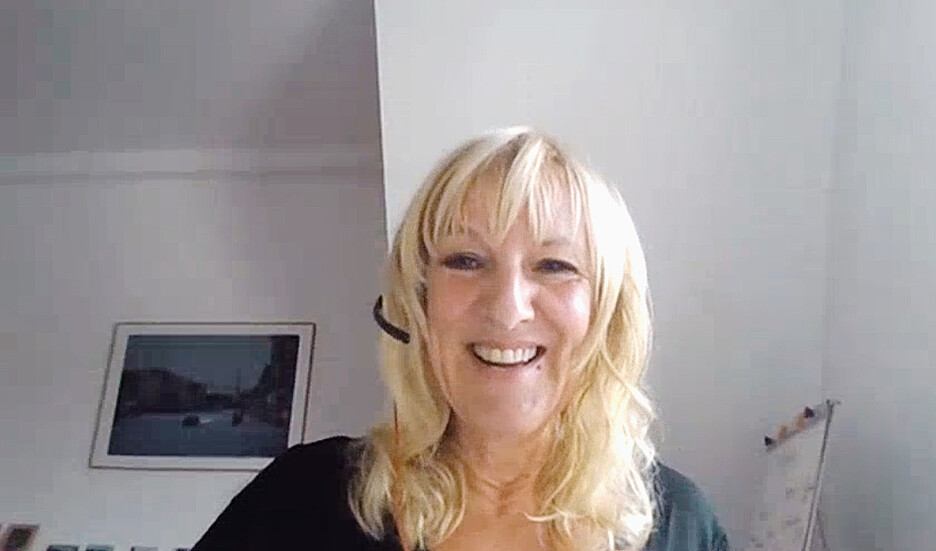
The workplace is becoming a melting pot of experiences
An onboarding coffee with the CEO, live streams of location-based projects and quiet rooms for young parents: The workplace of tomorrow will look different to traditional office life. Where and how will we work? And what will this mean in terms of job satisfaction, productivity and corporate culture? We put these questions and many more to three ZHAW specialists from the fields of applied psychology, labour law and workplace management.
How does work life look in the “new normal” following the coronavirus pandemic?
Birgit Werkmann-Karcher: Employees now enjoy a greater degree of autonomy. We are observing a move away from office life, with more people working from home or out of other locations. Halfway through the coronavirus restrictions, we surveyed HR professionals from companies of various sizes and from different sectors about the working methods and environments their firms planned to utilise in the aftermath of the crisis. At that time, it was already apparent that workplace structures would be less rigid following the pandemic. It is no longer as easy to reject an employee’s request to work from home. However, to what extent flexible working will be made possible remains to be seen. A compromise somewhere between giving employees complete freedom to choose and allowing them one day per week to work from home is where we will likely end up.

Lukas Windlinger: We are already seeing today that workers are coming to the office less. And, when they do come, they all come together – on Tuesday and Thursday. The question is how do we deal with this situation?
How often do employees want to work from home? And where do management staff stand on this issue?
Windlinger: Research has shown that employees prefer to work three days from home and two at the office, while companies often have precisely the opposite preference.

Werkmann-Karcher: Our survey revealed that IT finance and insurance companies see there to be great potential in a remote-only setup in which staff work outside the office. In the healthcare and public administration sectors, on the other hand, the view is held that there is rather little potential for employees to work on a remote basis.
“A compromise somewhere between giving employees complete freedom to choose and allowing them one day per week to work from home is where we will likely end up.”
Nicole Vögeli: The wish list of employees is huge. As a lawyer, I can well imagine that for legal reasons the trend may move back towards a situation where there is less working from home and remote working. At some point, we are going to encounter breaches of confidentiality or health-related problems. There are likely to be arguments about whether employees work too little when working from home, for example due to care responsibilities for other household members. On the other hand, there may also be debates as to whether employers have neglected their duty of care, should situations arise in which single individuals with little social interaction work too much and suffer a burnout. The question of cost should also not be underestimated. There is no obligation on the part of employers to make a financial contribution to the costs for home-office equipment and materials. However, compensation must be provided for Internet fees and a share of the employee’s rent, provided the home-office setup was not made possible exclusively at the employee’s request. Furthermore, as soon as remote work is performed abroad, there are also significant tax and social security implications.

Windlinger: In your view, is there a limit to the potential offered by home-office work when we look to the future? At present, there is a certain pressure on the labour market, meaning that employers are well advised to offer a considerable degree of flexibility if they want to attract or keep hold of talent.
Vögeli: There is certainly a limit when it comes to remote working abroad, with employees only being permitted to perform up to a maximum of 20% of their work outside Switzerland, i.e. one day a week for full-time roles. If this figure of 20% is exceeded, the employee in question would no longer be subject to the social security system of their place of work, but rather to that of their place of residence abroad. Apart from this, I personally see the limit as being two days per week, as otherwise there will be a shift in the employee's primary place of work, with the resulting legal consequences.
What are they?
Vögeli: For example, an employer would then have to pay expenses if an employee had to come to the company premises for a team meeting. In the event of a dispute, the question would arise as to where the place of jurisdiction is. Until now, little attention has been paid to the question of which public holidays have to be granted. Let’s assume that one ZHAW employee lives in the canton of St. Gallen and another lives in the canton of Zug. Both would have different public holidays. Or would it be possible to declare the public holidays applicable at the ZHAW’s headquarters in Winterthur as authoritative? With a view to ensuring legal certainty, and this applies to both sides, I believe that it will be necessary for not too much work to be performed on a remote basis away from the company premises. Of course, employers may well say that we accept these risks and additional costs and that they will handle everything on an individual basis. In the long run, however, companies will have to ask themselves whether this will pay off.
So you're saying that you would revert the way in which we work back into line with current law? There are also calls for legislation to be changed.
Vögeli: I really don’t think that the regulations on working hours and employees’ place of work should be tampered in order to protect health.
“As a lawyer, I can well imagine that for legal reasons the trend may move back towards a situation where there is less working from home and remote working.”
Werkmann-Karcher: While I understand this perspective, it goes totally against the narrative of New Work. Employees no longer want to give up the greater degree of freedom and time savings they have enjoyed and which can be used positively to enhance their lifestyles.
Vögeli: We all have to organise our lives: Some have a dog, while others have a sick mother or children. My concern is that the existing structure does not break down completely. I always say in my continuing education courses that our legal framework and the workplace provide a structure and that this is important for people. However, I might be wrong.
Are you still experimenting or do you already have your preferred working structure in place?
What is the situation like in your organisation? Is New Work already a reality? How does this manifest itself? Or are you still trying out new ways of working? What are you testing at the moment? Tell us all about it by leaving a comment below. We look forward to reading it!
Werkmann-Karcher: I am confident that organisations will strive to provide their employees with greater flexibility despite the legal restrictions. After all, their attractiveness as employers is very much at stake. In areas in which organisations face competition for skilled employees, remote working is also seen as a means of expanding the potential talent pool.
Vögeli: I have great sympathy for every supervisor who has to manage a large number of employees working on a remote basis. For some, this is nothing new. But many simply are not trained for it – either from a legal standpoint or psychologically. This appears to be a major problem to me. We need to protect, train and support these management figures.
Ms Werkmann-Karcher, do you also have sympathy for management staff?
Werkmann-Karcher: I don’t feel there is any need to pity them. For management figures, remote working does mean more work in terms of planning, coordination and communication if tasks cannot simply be delegated spontaneously by calling over to someone in the office or if you have been tasked with leading in a results-oriented fashion. However, the fact that managers require support here is very much on the radar of HR departments – or at least this is true in the case of the HR departments we have been able to talk to. All of them have invested in training for remote leadership. A great deal of experience in handling such setups has also already been gathered, for example by technology and telecommunications companies, as well as by organisations whose employees are distributed nationally or across different countries.
Vögeli: Still, you have to be particularly lucky if all of your employees decide that they want to come to the office on Tuesdays and Thursdays. If not, then somebody has to take this decision. And as a lawyer, I unfortunately get to see all the cases where it goes wrong.
Werkmann-Karcher: I also think there need to be guidelines. And the companies surveyed are working on these, too. Some of them specify that managers only need to be informed about flexible working arrangements, while others require that supervisors grant their approval. In other instances, teams are left to decide for themselves in a completely self-organised manner. Within these agreements, there should also be a part where individuals can choose themselves how and where they want to work. After all, nobody knows better than you what is beneficial in terms of your own performance. From a workplace management perspective, I find this issue much more difficult. What will this mean for our office spaces and the appearance of offices if a large part of how we work becomes flexible?
In a study conducted by the Fraunhofer Institute in 2020, some 62 percent of the companies surveyed opined that flexible working would open up potential savings with respect to office space.
Werkmann-Karcher: In our study on the “new normal”, we found that organisations that had rented office space were more likely to give it up. On the other hand, those that were building owners have invested in new office space concepts.
“The role of offices will change. When everyone is on site, there will be a greater need to exchange views and ideas.”
Windlinger: For me, the first requirement for a good office is most definitely that there are enough workstations available at all times. Solutions currently being tested that see employees having to reserve a workstation with their employer are not suitable in my view. As our working lives are so intense nowadays, nobody wants to have to worry about the infrastructure as well. This has to be in place and must function well.
How then are companies supposed to cope when demand for office space fluctuates so much?
Windlinger: We are working together with a company to develop a tool that will help organisations learn more about just how efficient and effective their physical workspaces are. It comprises a mix of data-based descriptions of the environment, movement data, user ratings and other empirical values. The tool also aims to help reduce companies’ environmental footprint by allowing for space optimisation measures and more sustainable building use, including with respect to the health and well-being of the workforce. Ultimately, this could also lead to an improvement in employee satisfaction.
So the office isn’t dead?
Windlinger: No, the idea of the office isn't a bad one.

“In their office environments, employees are able to choose where and how they want to work depending on their mood or the tasks they have to complete.”
What will the office of the future look like?
Windlinger: The role of offices will change. When everyone is on site, there will be a greater need to exchange views and ideas. It is here that meetings and check-in conversations will be held, while the office will also be where project or working groups come together. There will be very few instances in which people go to the office if they need to work quietly or without being interrupted. The only exceptions may be people with young children or those who do not have a suitable working environment at home for other reasons. While there will be focus rooms and booths, there will also be an increase in collaboration and encounters with others. Basically, office environments will have to reflect the different needs and preferences that now exist.
Even before the pandemic, we saw concepts for non-personal workspaces. Is that the direction in which we are headed?
Windlinger: During the pandemic, we surveyed 14 Swiss workplace managers as part of a trend study. This revealed that there is a trend towards more mobile/flexible working arrangements and, in connection with this, a change in office environments, which are now increasingly underpinned by activity-oriented concepts.
Can you paint a picture of what this looks like for us?
Windlinger: Employees are also able to choose where they want to work at the office depending on their mood or the tasks they have to complete. The various offerings aim to provide them will the best possible support in performing their work. Other companies that did not yet have such concepts in place are now moving in this direction due to the experiences gained during the pandemic. We will talk less and less about standard workplaces, and instead discuss work opportunities or work possibilities within an office. After all, we spend most of our time alternating between meetings, informal discussions over a coffee or even briefly withdrawing so that we can focus on our work or recharge our batteries. I am convinced that the office still has legs and will survive.

“While an employee’s networks within their company may weaken, co-working facilities for employees of different organisations could provide a springboard for new ideas.”
How can innovation and corporate culture be promoted without offices or shared workspaces?
Windlinger: That is a big question at the moment. Working together with a colleague from the School of Management and Law, we at the Institute of Facility Management have looked into this, along with other aspects, as part of a mandate for an IT company. We found that many things work well or even better when employees work remotely. Teams that worked before also work on a remote basis, while the service provided to customers was also right.
Then all is well?
Windlinger: Not quite. The challenges faced by this company were indeed related to its culture and identity. I am slightly worried that organisations may come apart at the seams if this share of remote working increases too much. New or younger employees, in particular, have a hard time: How are they supposed to observe how longstanding team members do things and benefit from their experience if nobody is there? The functional aspect of working is just one thing. The workplace experience, community and culture are also important. These things need to be given greater attention once more.
Ms Werkmann-Karcher, what are the HR professionals you interviewed doing to promote corporate culture?
Werkmann-Karcher: In companies where experiencing joint events was a defining element of their culture, the absence of employees was decried. However, the attempts at finding virtual substitutes were impressively varied, ranging from access to location-based projects via live streams and onboarding coffees with the CEO to flat tours, cooking together and motivational, sports or game-related challenges. Nevertheless, it still remains difficult to assess how much and what it will take for employees to continue to identify with the company.
Can trust also be built virtually?
Werkmann-Karcher: Of course. The development of a bond is then more dependent on other factors, such as how quickly somebody responds, whether they provide you with resources you need for your own work and whether they remain accessible. In the case of relationships that arise from a work context and work tasks, such cohesion can also be fostered successfully at a virtual level. So-called weak ties are viewed as a challenge. These involve relationships with colleagues who you do not deal with on a daily basis but who are nevertheless seen as key to ensuring good networking, innovation and creativity. While an employee’s networks within their own company may weaken, co-working facilities for employees of different firms, for example, could provide a springboard for new ideas.

“We need to increase compensation for professional groups and employees who do not benefit from flexible working arrangements in terms of time.”
Vögeli: This once again has a legal component – the duty of loyalty. The less I identify with a company, the less seriously I may take my duty of loyalty. I may be quicker to make negative comments about the company as I am too detached. We are also seeing an ever-increasing number of negative posts about colleagues being made on social media.
When people talk about flexible working and New Work, it is always in connection with office employees.
Werkmann-Karcher: And according to the FlexWork Study 2020 performed by the University of Applied Sciences and Arts Northwestern Switzerland, they account for only around 48% of the workforce who are able to work on a mobile basis. In other words, only a small proportion.
Is there actually New Work in other areas, too?
Werkmann-Karcher: I can think of examples of artisan businesses that are now increasingly attracting media attention because they are establishing a new form of leadership, giving employees a greater say and trying to provide flexibility in terms of the choice of working hours. These are certainly approaches that can also be classified under the bracket of New Work. We are also seeing general efforts from companies to make life easier for their employees and to create a better “employee experience”. I heard about one company that offers an ironing service. At other companies, employees have the chance to collect food in the evening from the canteen so that they can take it home with them.
Vögeli: We need to increase compensation for professional groups and employees who do not benefit from flexible working arrangements either in terms of time or where they perform their work. I am thinking, above all, of people who work in artisan trades or the care sector. Here, we will not be able to get around the wage issue.
Werkmann-Karcher: Following the easing of coronavirus restrictions, Nicholas Bloom, a pioneer in studies on remote working issues, asked remote workers in the US how much it would be worth to them, as a percentage of their salary, to be able to continue working under such flexible conditions. I think the result was somewhere between 7 percent and 8 percent, with young people attaching more value to this freedom than older generations. Bloom’s suggestion was to then use this figure to top up the wages of those who can’t work remotely. I think that this is an idea worth looking into.
Should this extra money for non-remote workers be deducted from remote workers?
Vögeli: This is a big talking point. I would be a little bit more generous and not deduct anything. In order to attract talented individuals, we have to be able to make top offers in terms of wages in any case. Incidentally, I have already received a legal enquiry as to whether wages can be reduced if people work exclusively from home, as had been discussed by major IT firms in the US.
And can they?
Vögeli: An employer in Switzerland can unilaterally implement a salary reduction by means of a notice of change. The question of whether this would be deemed as improper will be interesting. Fundamentally speaking, commuting costs are the responsibility of employees and it is not immediately apparent what objective interest the employer has in reducing wages in this case. On the other hand, the approval of (more) remote work may well be made dependent on an agreement to a salary reduction. Apart from statutory minimum wage requirements, wages are freely negotiable.
For you personally, what does the ideal working world of tomorrow look like?
Windlinger: The workplace and its infrastructure are an important component. In essence, it is about coordinating the content of our work, our social relationships and the locations and environments in which we work. Under the theory of New Work, the meaning and purpose of work are also central, meaning that we do things that are meaningful or that we can personally experience as meaningful, making a contribution to a whole, something greater, and doing so in a context that works both at an individual and interpersonal level. There are already many developments here that are to my liking.
Where is there a need to catch up?
Windlinger: When it comes to greater well-being and health, I believe we have some catching up to do in the area of biophilia, in other words increasing our connection to nature through the use of natural materials in interior spaces. These can be plants or even natural surfaces. The topic of water also plays a role. After all, we know that it is good to offer quiet rooms, especially for new parents who have only slept for four hours at night – and not always in one stretch either. It would make sense to offer these individuals the opportunity to sleep for an hour or so at the office.
How do your clients respond to the recommendation for more sleep at the office?
Windlinger: I often hear that you go to the office to work, not to sleep. I sometimes make fun about the Zwinglian attitude encountered in Zurich. However, the mindset is no different in Bern, Lucerne or St. Gallen. I counter this view by asking why not if it leads to an improvement in both our health and performance. Ultimately, infrastructure costs are a drop in the ocean compared to wage costs. I would always see this as an investment in your employees. Making generous investments in working environments, with a sense of proportion in terms of sustainability, would be no bad thing. I don’t think it makes sense to try and make savings here.
Werkmann-Karcher: Of course, I would really like to see these workplace conditions that actually tick every box, allowing employees to work well on any given day, doing so in an easily accessible manner and without transaction costs. Otherwise, I am also a fan of having the freedom to actually choose where I can work at my best – for those times where being able to focus is imperative or when I need to get my creative juices flowing. There is part of being creative that can be tapped into much better when working with others and only really works in this setting. At the same time, however, there is also part of the creative process where I have to dig deep within myself to come up with good solutions.
Vögeli: From my perspective, mutual appreciation and respect are the most important things. Of course, it would be great to have an ultra-modern office space. I personally have a standard workplace, but I feel extremely comfortable there.
Glossary
Remote Working: Working on a remote basis outside of an organisation. Nowadays, this is usually made possible with the help of information and communication technology.
New Work: The term was founded at the end of the 1970s by the Austrian-American social philosopher Frithjof Bergmann. In his view, people should be at the centre of work and work should not only be a means to an end. Today, New Work describes the structural changes taking place in our working world. Causes include the trends towards digitisation, globalisation and the development of artificial intelligence, which are opening up new possibilities for working and collaboration.
0 Comments
Be the First to Comment!